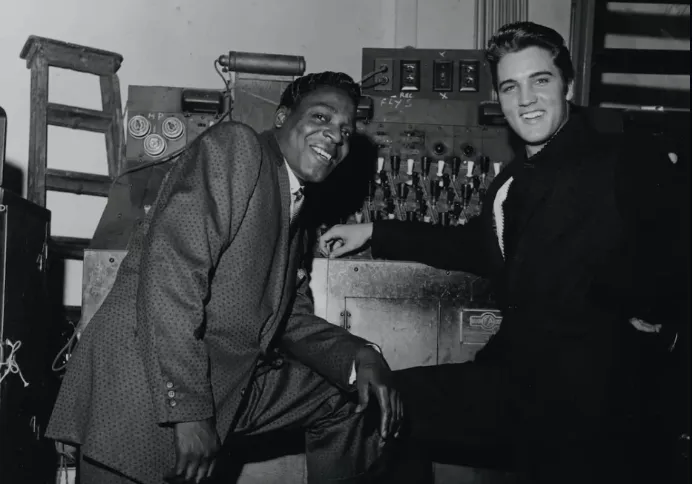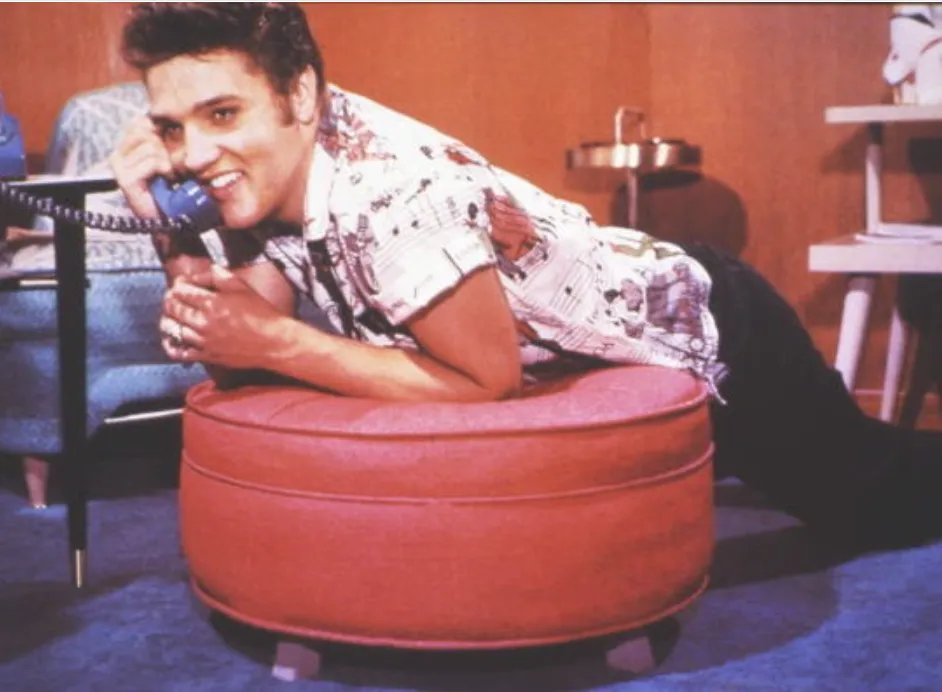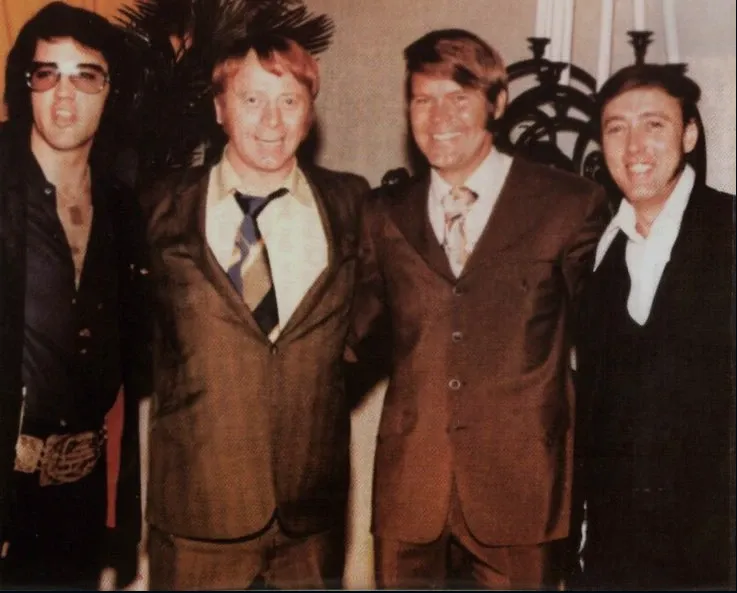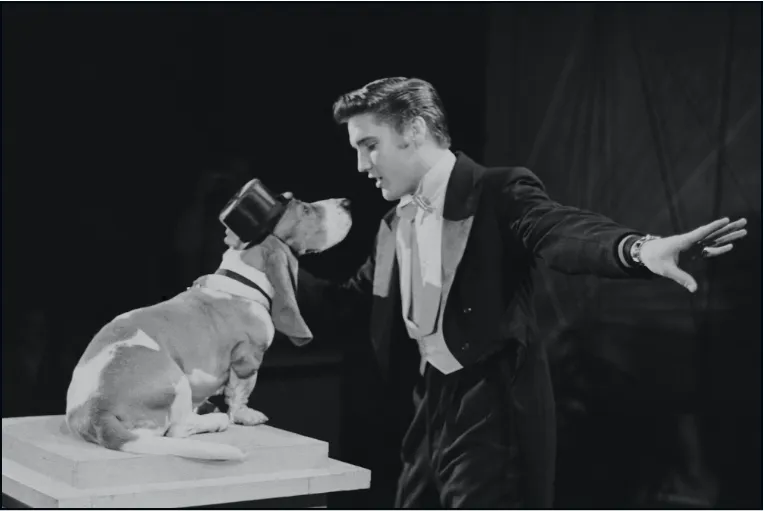When you hear the first raw, electric chords of "Hound Dog," you know you’ve entered the realm of rock 'n' roll history.
As the Jervis Family, we find ourselves drawn to the story of "Hound Dog," not just for its irresistibly catchy beat but for its marked significance in transforming the music landscape of the 1950s.
This iconic track, performed by the legendary Elvis Presley, carries a tale of sonic revolution, cultural upheaval, and a young man who would become the King of Rock 'n' Roll.
The Origins: Before Elvis
The origins of "Hound Dog" predate Elvis Presley’s memorable rendition in 1956. In fact, the song was initially recorded by blues singer Big Mama Thornton in 1952.
Written by songwriting duo Jerry Leiber and Mike Stoller, this gritty blues track struck a chord with its biting lyrics and emotionally charged performance.
Big Mama Thornton’s version topped the Billboard R&B charts for seven weeks in 1953, carrying with it the raw emotion and depth of the blues.
As we listened to this version, we could feel the palpable intensity and attitude that lay beneath the surface—a precursor to the groundbreaking transformation it would undergo in Elvis Presley's hands.
A Young Elvis and A New Sound
By the time Elvis Presley encountered "Hound Dog," he was on the cusp of monumental stardom. The mid-1950s marked a period of musical awakening for America, and Elvis was at the forefront.
Sam Phillips of Sun Records discovered Elvis, who quickly became known for his captivating voice, rebellious flair, and magnetic stage presence.

Elvis first performed "Hound Dog" in 1956 on The Milton Berle Show, a performance that would soon become iconic.
The Jervis Family, like many others, marveled at Elvis’ ability to reinvent a song, infusing it with unprecedented energy.
With his hip-shaking dance moves and electric performance style, Elvis turned "Hound Dog" into a cultural phenomenon.
Recording History in Studio B
The official recording of "Hound Dog" took place on July 2, 1956, at RCA’s Studio B in Nashville. The session was legendary, capturing not just a song but a seismic cultural shift.
Guitarist Scotty Moore’s driving riffs and drummer D.J. Fontana’s relentless beats anchored Elvis’ visceral vocals, creating a wall of rock 'n' roll sound that was both revolutionary and irresistible.
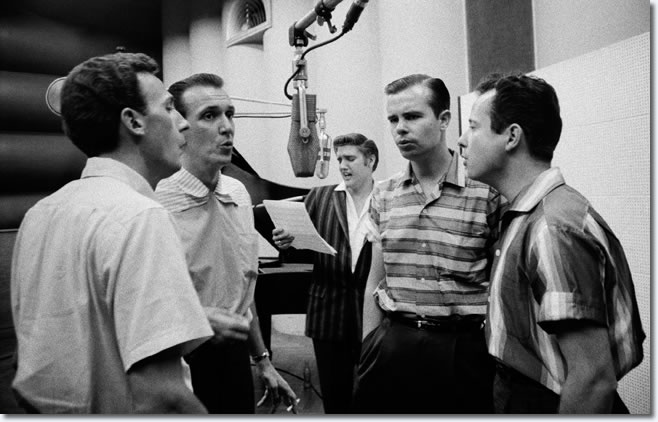
As we dug through old interviews and articles, the Jervis Family found that everyone in the studio that day felt something special was happening.
People who were present spoke of the electric energy that pervaded the room, with Elvis’ charisma pulling everyone into an orbit of sheer musical brilliance.
Chart Topper and Cultural Flashpoint
Upon its release on July 13, 1956, "Hound Dog" quickly climbed the charts, reaching the number one spot on the Billboard pop charts where it remained for a staggering 11 weeks.
The song also achieved success on the country and R&B charts, signaling its wide-reaching influence.
Elvis Presley’s "Hound Dog" wasn’t just a musical hit; it became a cultural flashpoint. This era saw a growing rift between conservative societal norms and burgeoning youth counterculture.
Elvis’ energetic and rebellious performance style, epitomized in "Hound Dog," symbolized a break from tradition and a rallying cry for the younger generation.
As a family that has seen the societal shifts over decades, the Jervis Family relates to the impact Elvis had on culture.
My grandparents often talked about the buzz and controversy Elvis generated. To us, these stories not only highlight Elvis’ individual influence but also frame "Hound Dog" as a transformative moment in American culture.
Critical Reception and Enduring Legacy
"Hound Dog" cemented Elvis Presley’s place as a musical innovator and a cultural icon. Critics hailed the song for its raw energy and catchy melody.
Even detractors who found his performance style controversial couldn’t deny the magnetic pull of the music.
The legacy of "Hound Dog" extends far beyond its initial release. It became a hallmark of Elvis’ live performances, an anthem that encapsulated the spirit of rebellion and freedom.
It has been covered by countless artists, each bringing their unique spin to the classic, yet none capturing the magic quite like Elvis.
The Jervis Family has a tradition of playing "Hound Dog" at family gatherings, marvelling at how a song can unite generations.
From my grandparents swaying to the beat, reminiscing about the ‘50s, to younger family members dancing with unabashed joy, "Hound Dog" serves as a living testament to Elvis’ enduring legacy.
The Song's Cultural Impact

Beyond its musical prowess, "Hound Dog" played a crucial role in societal change. It brought African American musical innovation into mainstream white culture, helping to break down racial barriers within the music industry.
Elvis’ version, rooted in the blues and transformed into a rock ‘n’ roll anthem, was a cultural bridge that exposed broader audiences to the foundational elements of American music.
Moreover, Elvis’ hip-swinging performance of "Hound Dog" on The Milton Berle Show broke the mold of conservative television standards, leading to widespread debate and a significant backlash from older, more conservative segments of society.
Yet, it also galvanized the youth, helping to forge a robust, transformative rock ‘n’ roll culture.
Reflecting upon this, the Jervis Family acknowledges the dual role "Hound Dog" played both as a musical landmark and a catalyst for broader societal change.
Talking to friends and neighbors who lived through that era, it’s clear the song was much more than a hit—it was a revolutionary act wrapped in a rock 'n' roll package.
The Universal Appeal of "Hound Dog"
"Hound Dog" speaks to universal human emotions—betrayal, defiance, and liberation.
Its simple, direct lyrics combined with an infectious melody ensured it resonated with a broad audience.
The Jervis Family sees this song as an example of music's ability to transcend barriers and bring people together, evoking emotions that are both deeply personal and universally understood.
Today, "Hound Dog" continues to be celebrated worldwide, from karaoke bars to high-profile concerts, a lasting reminder of a moment when music changed the world.
A Timeless Classic
Elvis Presley’s "Hound Dog" is more than a song; it is an enduring symbol of a transformative era in music and culture. Through his electrifying performances and the song’s infectious energy, Elvis captured the spirit of a generation and left an indelible mark on the world.
For the Jervis Family, "Hound Dog" remains a cherished piece of musical history, an anthem that exemplifies the power of rock 'n' roll.
It invites us to reflect on the past, appreciate the present, and look forward to a future where music continues to inspire and bring us together. As we listen, we’re reminded of the timeless magic Elvis brought to the world, sealing his legacy as the King of Rock ‘n’ Roll.
